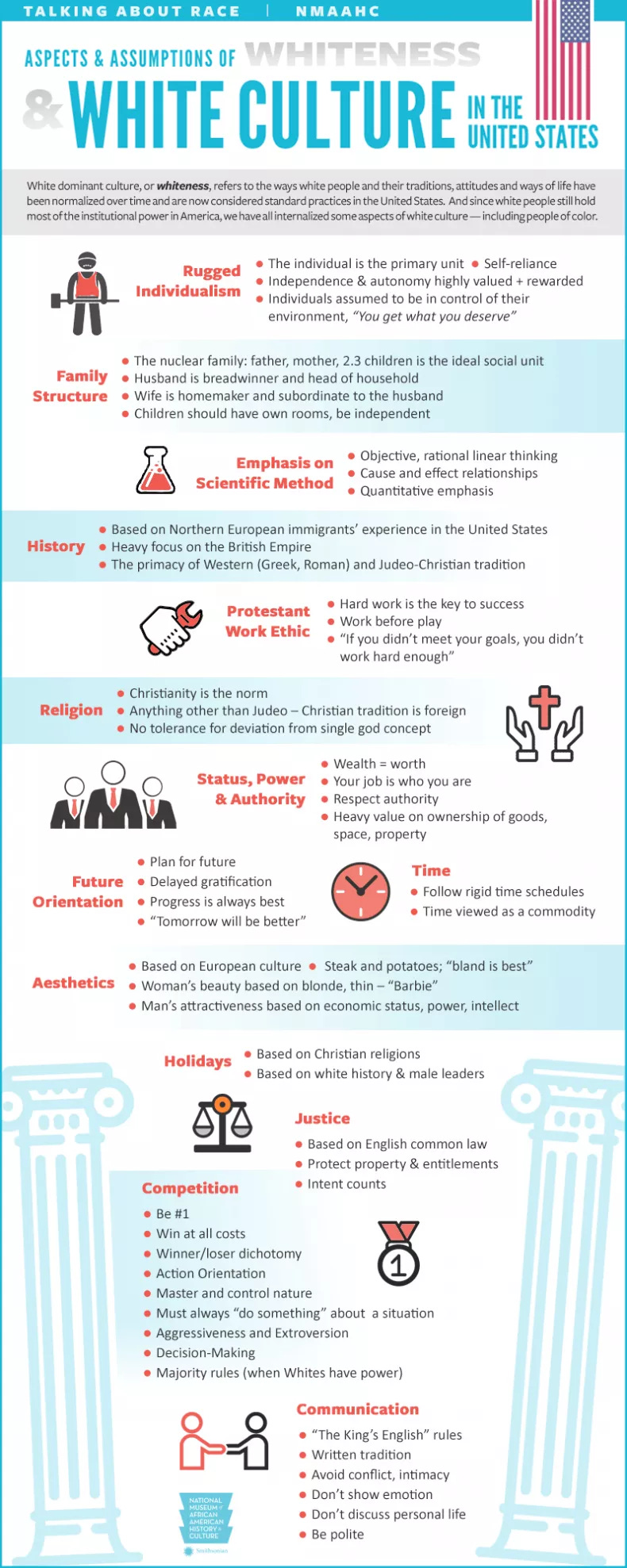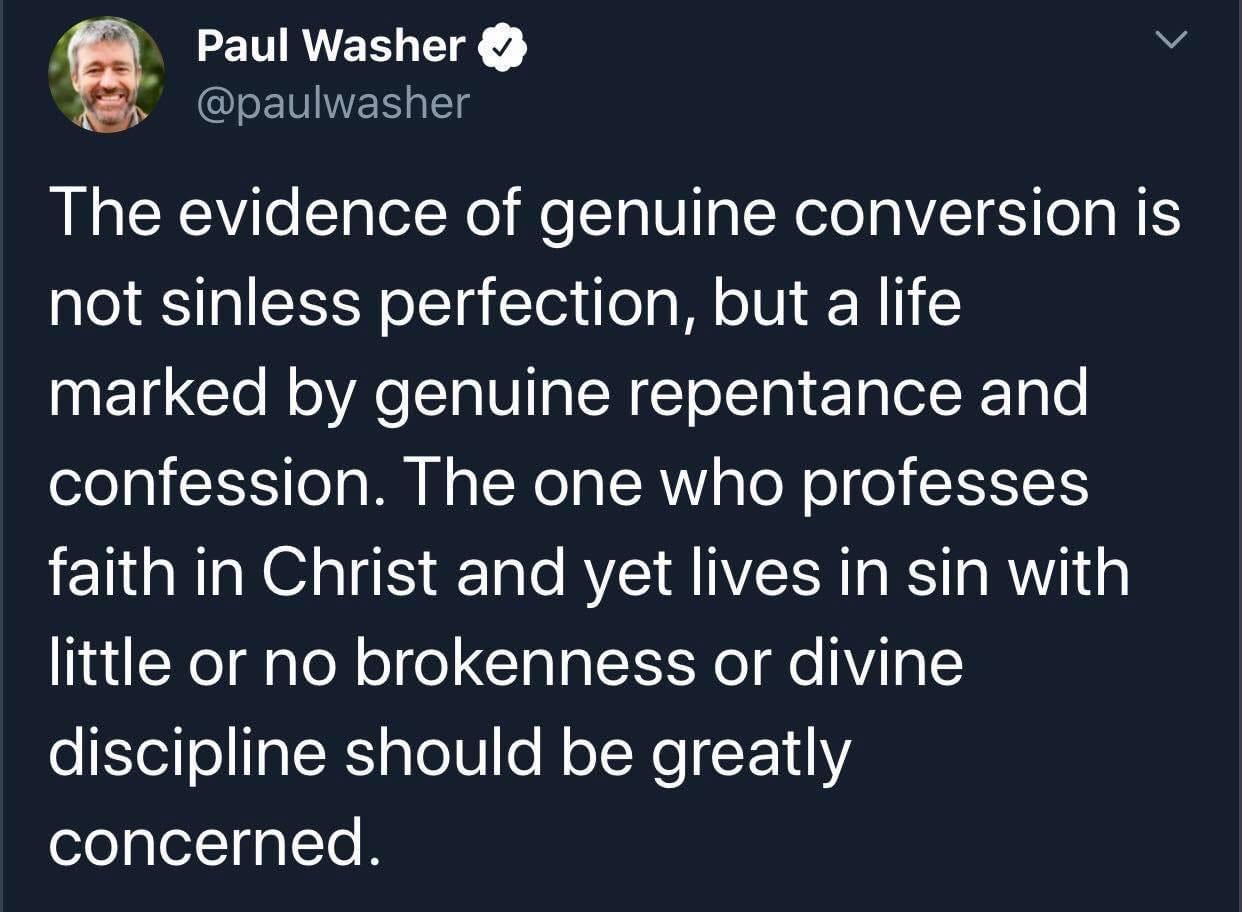
Discover more from Jeffrey Rickman’s Substack
With the formation of the Global Methodist Church, a reclaiming of the Methodist heritage is in order. Many voices are submitting ideas with respect to the particulars of Methodist identity. I have my own thoughts, which are being spelled out in a series of articles. This is the sixth of at least twelve. You might read my introduction to this series first in order to know how I have thought through this project and why I care about it.
Problematizing Christianity as Whiteness
We live at a time in which orderliness is maligned as a distinctly white concern. People who believe that qualitative differences exist between people based on inalienable characteristics, racial essentialists, or racists, have tried to create a stink around the concept of orderliness. Is it true that order and discipline are racialized concepts?
In a nation that was formed by the “Protestant Work Ethic,” in which the saying, “cleanliness is next to godliness” was once common, we have now seen the propagation of a message that works to indoctrinate black and brown people, as well as all lower income individuals, to believe that order and discipline are the province only of white people and model minorities.
You can tell from the way I have framed this that I am not in favor of this program. In case you think I’m being hyperbolic, consider an infographic generated and circulated by the Smithsonian before public outcry caused them to delete it from their website:
This is a problem. When the Christian way of life is racialized, then there will be racial implications for the Christian faith. The Christian faith was originally proclaimed abroad by Middle Eastern and North African people. Christianity is not the province of any one ethnic group.
Why am I talking about this? Because, in order to follow Christ rightly, one needs to be ordered and disciplined in one’s way of life. This is a fundamental property of God. Genesis 1 describes a God who enters into chaos and creates order. He separates light from dark, land from water, heavens from earth. Those of us who are made in his image (all humans) are designed to mirror his character in the world around us. That means that we similarly create order out of chaos. The process whereby we do this is a stringent and strict discipline applied to all areas of our lives. This just so happens to overlap with the Methodist heritage. Remember that the name ‘Methodist’ was originally pejorative, marking those who were so serious about their faith as to be disciplined about it. It was a facet of authentic Christianity modeled, lost over time, and then reclaimed by the Methodists. Those first generations of Methodists modeled the order and blessedness that always comes from high discipline.
It is a concern for order and purity that led to modern hygiene. It is hygiene that mainly turned the tide against the diseases that were rampant at the turn of the nineteenth century. It is a concern for order that has created modern industry, which has raised billions of people out of abject poverty. Order keeps the forces of chaos and destruction at bay, such that life can flourish. This is why Jordan Peterson’s first step in counseling people to improve their lives is: “Clean your room.” Creating order out of chaos is a godly and good thing.
What does this have to do with Methodism and Christianity?
Consider Albert Outler’s analysis in his Introductory Comment on John Wesley’s “The Danger of Riches”:
“Wesley’s followers accepted most of his demands for disciplined Christian living (good works as the fruit and proof of faith). Moreover, given his stress on a self-denying moral rigorism…it was natural enough that more than a few Methodists moved upward on the economic scale from erstwhile poverty toward modest affluence.”
- John Wesley’s Sermons: An Anthology, P. 451
The distinct countercultural daily way of life for Methodists caused a measurable and quantifiable shift in their lives, expressed economically in this case. Delay of gratification is one of the primary drivers in success and wealth accumulation. Humans naturally think in the short-term rather than the long-term. A framework that gives someone a long-term vision, or, better, an eternal vision, is of great potential worth to people. The Methodist vision of the good life is eschatological in nature, concerned with the eternal over the momentary. This is what gives believers the clarity to practice self-denial in the moment for the sake of an eternal reality.
In his Alienated America: Why Some Places Thrive While Others Collapse, Timothy P. Carney makes the case that the success of America broadly, its cities in particular, and individuals cumulatively corresponds with institutions that build and maintain trust. Of these, churches are paramount. An ideal church holds people together intimately, builds and maintains trust between them, and removes bad actors from its midst. It just so happens that this was the norm in Methodism for over a century. It is no coincidence that the period of the most dynamic growth and production in America corresponded with a period in which one-third of all church goers in the US were Methodist.
In his recently-published Doctrine, Spirit, and Discipline, Kevin Watson makes the case that, essential to the nature of Methodism from the very beginning was an intimate way of “watching over one another in love.”
“Wesley was convinced that if Christians seek to go it alone with an individualistic approach to holiness, they will almost certainly fall short of what God intends for them and may even lose their faith entirely…[T]his insight led Wesley to invest significant time and energy into communal formation. Any discussion of the doctrine of holiness in early Methodism, then, must keep in mind that for Wesley this pursuit is inherently communal.”
- Watson, P. 35
This was why class meetings were made central and essential to Methodist identity.
“At the most basic level, to be a Methodist meant you participated in a weekly class meeting…So one could not be a Methodist without participating weekly in their class meeting. Weekly participation was not only expected; it was a requirement for membership…If a Methodist missed their class meeting more than three times in a quarter, they were often removed from membership in Methodism.”
- Watson, P. 49
Carney also effectively makes the case that churches effectively provide for wealth equality better than any other institution, and they also raise the bar of education for publicly-educated children in their location, among other benefits. His stats on these impacts are from the mid-twentieth century, when mainline churches were at their zenith of organization and prowess. This is why guys like Richard Ackerman are refusing to give up on the mainline, as they hold so much promise for the common good. Modern independent churches are unable to maintain the discipline and order required for such a firm hand on the wheel. (See my previous post in this series for the particulars of why independent churches fall far short of the Methodist vision)
Distinctly Methodist Discipline
Methodists guaranteed good order and discipline through the General Rules. This is a document detailing how the ethos of the Methodists was to be protected across the connexion. It is a very solid document, on which I have actually done a series. I would encourage you to consider reviewing the document with me and considering it import for today. HERE is the link to the first episode in that series. Let me know your thoughts.
The long and short of it is that Methodism guaranteed good order and discipline by kicking out anyone who habitually and unrepentantly broke their shared covenant rules. Every Methodist had to regularly report on their obedience to their shared biblical way of life on a weekly basis to his class and its leader. If they refused to attend or report, they were shown the door. These “disorderly walkers” were removed against their will, sometimes in massive numbers. Thus the only remaining Methodists in a society were those who were willing to be held to a high standard of discipline in their daily personal lives. These practices maintained long after Methodism became a denomination in the United States of America. It was not only practiced effectively and fruitfully during the days of revival within the Church of England, but also in days of denominational success and growth within America. I will do a future segment on how important it is to exercise this quality control. For now, the main point needed to be made that, at one point, for a long time, Methodism was synonymous with a way of life that is disciplined.
The Contemporary Problem
We live in an era in which people want to normalize mess and dysfunction. Even in believers’ houses, one is often likely to see little things on the walls saying, “God bless this mess.” Many churches practice a fad called “Messy Church,” in which they have pretty much given up on creating disciplined and well-behaved children in worship. We shame people for maintaining high standards of cleanliness and order for themselves and others. There is a constant pressure to lower standards in order to include the less functional in our society: those whose households are a mess, who can’t go to bed on time, who cannot eat a healthy diet, who cannot maintain good hygiene.
Ask any public school teacher in a lower- to middle-income population how all this is working out for us. When the standards for children decline, then the quality of the average student declines. Once upon a time, before our societal degradation, parents worked alongside teachers to discipline their children and teach them to lead orderly, responsible lives. Today, parents are commonly aligned against teachers, taking offense to any who hold them to high standards. Rather than teaching children to be resilient, anti-fragile, disciplined, and basically functional, an increasing percentage of parents see it as their job to enable and undergird dysfunctional children throughout their adult lives. A recent report showed that 26% of Generation Z job applicants bring parents to job interviews with them. Jonathan Haidt and his After Babel movement are chronicling all the ways in which contemporary generations are being disabled by lack of discipline.
This all comes down to anthropology (in the theological sense). All humans are fundamentally flawed and bent towards sin, continually. We are unable to save ourselves. We need communities of peers to do life alongside us, hold us accountable to a shared rule of life, admonish us when we fail, validate us as we meet the shared standards. A framework that imagines all humans to be born perfect and without need of radical revision will not be up to the task of bringing about the best in us. Whenever someone says something along the lines of “God doesn’t make junk,” run from them. They are justifying reprobate behavior and ways of life.
Wanting to speak inoffensively to the present age, most churches and their leadership fail to speak clearly about how important discipline and order are in the lives of believers. We don’t want to make folks feel judged. But the thing is that most folks know deep down that their lack of discipline is killing them. When they are chronically late to work, unmotivated in their pursuits, spending half their days watching stupid silly videos on their phones, they and their children are eating garbage food, and they are chronically anxious, depressed, and tired…they know something is wrong. Yes, they need to know Jesus. But if the lives do not bear fruit worthy of repentance, then churches offer them very little of true substance. The question is before churches: Will they speak the truth in love to folks awash in sin and disorder? Or will they instead speak of a simplistic faith in which having Jesus in your heart is all that is required for the good life in Christ? These are not the same…
Needed Clarity
Humans are made to work and bear burdens. These are godly traits that ennoble our lives. “My Father is always at his work to this very day, and I too am working,” said Jesus when the community leaders of his day shamed him for his higher standards of godliness (John 5:17). We, too, should work when others rest. We should be awake and active when others sleep in drunken stupor. We should pick things up and put them in place even when others are sitting in their own slop.
I am not writing about some persnickety, over-scrupulous way of life. I am talking about a godly way of life that effectively does spiritual warfare against satanic forces that seek to demoralize us in a melange of disorder and apathy. A concern for holiness and purity self-evidently leads to an orderly and disciplined way of life.
So let us be clear: All Christians are called to the highest standards of discipline. The virtue of self-denial is not optional. Bible believing people should not have to be cajoled into rooting out all sin and evil from their lives, or examining their doctrines with diligence. From the moment we wake to the moment we sleep, and even in our sleep, Christians should painstakingly submit all that we have and are to the God of order. And when we gather to worship, good order must be protected, for “God is not a God of disorder but of peace—as in all the congregations of the Lord’s people.” (1 Cor. 14:33).
Let us be clear about more: All humans are equally made in God’s image. No one people group is more naturally inclined towards godliness than any others. To argue that black and brown people around the world are just not as able to be as disciplined in their daily lives as white people is definitionally racist. It leads to death and despair among minorities in America and abroad. Western Christianity, in its pursuit of order, uncovered a way of life that leads to astronomical flourishing and wealth. However, without the spiritual discipline of previous generations, that wealth has now rotted in our mouths. Societal collapse is a choice. That seems to be what we are choosing when we teach people to be complicit in mess.
Meanwhile, charter schools like Success Academy effectively work with students of historically marginalized groups in New York City and form them into highly successful students, competitive with elite white private school students. We have created a myth: there was once a less-developed form of humans that were obsessed with all kinds of rules and strictures, but they were benighted in draconian ethics. We today know better and can use synthetic technologies to give in to every desire of our hearts. This is a lie directly from the evil one. People of every nation, tribe, and race are called to be chastened and disciplined in our daily lives by the Lord, because “the Lord disciplines the one he loves” (Heb. 12:6). Have I mentioned yet that the words ‘disciple’ and ‘discipline’ have the same root for a reason? One cannot be a good disciple of Christ without the highest standards of discipline. “Be perfect as your Heavenly Father is perfect” came directly from Christ himself. We would do well to listen.
This is the Way
Methodism, which is nothing more than the dream of pristine, primitive Christianity, is the answer to the world’s ills. These ills begin with sin and lead to death. The chaos and disorder of our world is not winsome and romantic. It is ugly and death-dealing. All who love the Lord, no matter where they come from, are called to common purpose of disciplining themselves for God’s glory. This is not a call for elites, but for every believer. As early Christians were known among pagans for living more morally upright and disciplined lives than their very best philosophers, so all believers today must radiate the joy and order known only through Christ Jesus. Or, as Jesus says, our righteousness must exceed that of the scribes and pharisees. This is not a classist requirement. It is a salvation requirement.
By the power of the Holy Spirit, no matter how messy and disordered we are, Christ can bring order. Remember the Gerasene demoniac. He was full of more demons than anyone could reckon with. Yet, by the power of the Holy Ghost, Christ cast them out. The man was left “ordered and in his right mind.” This is what an encounter with Jesus does: It orders our lives. It is not a loving thing to leave people in mess. To be ambivalent about the squalor and depravity in which many live is a hateful thing.
The Methodist tradition is uniquely positioned to minister to this current age. The form and power of godliness can bring order to disordered and disrupted lives. The Holy Ghost, once a very familiar presence in Methodist societies, offers the same gifts and graces today. The answer lies not in innovating a new Methodism, but in reclaiming an old one. It isn’t that this former Methodism eventually petered out and was displaced by a better version. It is that the leaders of the late-nineteenth century grew lax and indolent, self-justifying and compromised. Christ deserves a church that will again spread scriptural holiness across the land. Modern Methodists would do well to reclaim our heritage of great discipline. To fail to do so would deeply compromise any attempts to live in a countercultural way in the midst of this crooked generation.
I need to continue prompting Methodist leadership: If you are not regularly pushing class meetings, you are falling very far short of the power of Methodism. If you want to reclaim what was lost, you need to make this of paramount concern. There is no point trying to reclaim our doctrine and spirit if we lack the discipline to implement it.





















I’m in total agreement that hard times create strong men. I would add to that: Trials and tribulations facilitate the conditions needed to create strong churches. Just look back to when Christianity thrived the most; it was when it was considered weak by worldly standards. It’s still true today where underground house churches are expanding in cultures that are repressive toward the Christian faith. I don’t think it coincidental that historically speaking, an increase of affluence in the West paralleled a decline in authentic Christianity. In my opinion, we’re heading towards hard times. Are we prepared? Methodism as a movement has within its spiritual DNA the needed response to hard times that lay ahead.
At work I would stay late to clean up my desk area. I wanted to walk into "order" when I started my day the next morning One afternoon a coworker commented, "You know a clean desk is a sign of a sick mind." I think he was joking. Irregardless, I took it as a compliment. I agree with your comments about discipline and order. I remember a friend with long hair and funny sense of humor who enlisted in the Marines. When I saw him after boot camp, I was shocked. He was a completely different person. I asked why he wanted to be a Marine, he said he wanted to be disciplined. He succeeded. I admit I missed the young man he was before. Maybe we can develop our own "Christian boot camp". I would be willing to sign up.